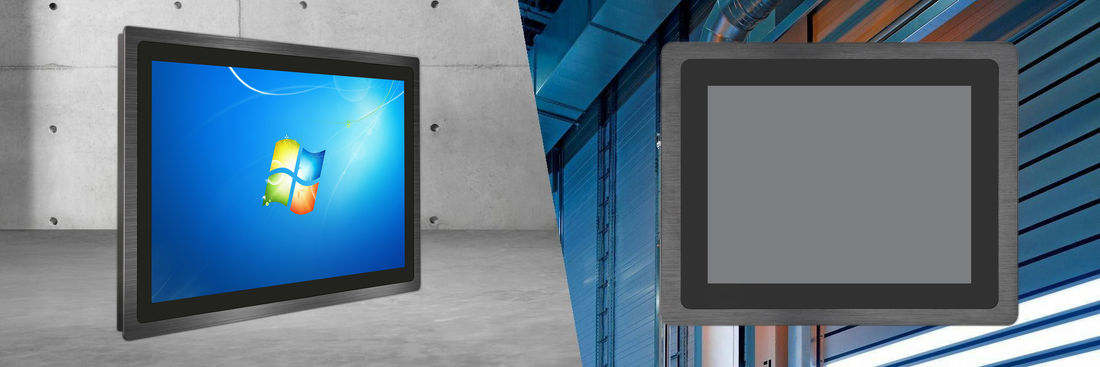
Unlocking the Power of Facial Recognition Technology in Modern Industries
Unlocking the Power of Facial Recognition Technology in Modern Industries
Facial recognition has rapidly emerged as a cornerstone of modern technology, significantly influencing security, consumer experiences, and various industry operations. The ability to identify individuals through unique facial features offers a level of convenience and sophistication that surpasses many traditional identification methods. This cutting-edge technology has evolved to become indispensable in a variety of sectors, from law enforcement to personalized customer service.
What is Facial Recognition Technology?
Facial recognition is an advanced biometric technology that identifies or verifies individuals by analyzing and comparing facial features. It involves detecting the unique geometry of a person’s face—such as the distance between the eyes, the contour of the cheekbones, and the shape of the nose and jawline. These features are used to create a "faceprint," similar to how fingerprints are used in traditional biometric systems.
Key Steps in the Facial Recognition Process
Understanding the facial recognition process sheds light on its impressive accuracy and efficiency. Below are the core steps involved in the system:
- Face Detection
- The system begins by detecting a face in an image or video stream. This is typically done using advanced computer vision techniques to isolate human faces from the background.
- Feature Extraction
- After locating a face, the system extracts specific features, such as the position and size of the eyes, nose, and mouth. These features are quantified into a mathematical model, creating a digital representation of the face.
- Template Creation
- Based on the extracted features, a face template is generated. This template is a set of data points that uniquely represents the individual’s facial features.
- Matching Process
- The final step involves comparing the new face template with existing templates stored in a database. If the system identifies a match, the person is recognized; if not, further verification may be required.
Real-World Applications of Facial Recognition
Facial recognition technology has transcended beyond its initial use in surveillance to offer versatile applications across numerous industries. Here’s a closer look at some of the most prominent uses:
- Security and Surveillance
- Facial recognition has revolutionized security systems, enabling automated access control and real-time monitoring. In high-risk areas like airports, government buildings, and public spaces, this technology can scan large crowds for individuals of interest, significantly enhancing public safety measures.
- Authentication and User Access
- From smartphones to secure workstations, facial recognition offers a seamless and secure way to verify users. This biometric authentication method eliminates the need for passwords and provides a faster, more convenient alternative to fingerprint or PIN-based systems.
- Law Enforcement
- Police and security agencies are leveraging facial recognition to solve crimes faster. By analyzing video footage and cross-referencing face templates with criminal databases, law enforcement can track down suspects more efficiently and accurately.
- Personalized Customer Experiences
- In retail, hospitality, and entertainment, businesses are harnessing facial recognition to enhance customer experiences. Personalized recommendations, faster checkouts, and even customized advertisements are possible through advanced face-matching technologies that recognize repeat customers and adapt offerings accordingly.
- Healthcare and Medical Uses
- Facial recognition is increasingly being used in healthcare settings, particularly for patient identification and ensuring secure access to medical records. The accuracy and non-intrusiveness of this technology make it ideal for protecting sensitive healthcare information.
Challenges and Ethical Concerns
Despite its vast potential, facial recognition technology is not without its challenges. Ethical debates surrounding privacy, bias, and data security have sparked considerable concern. For instance, there are fears that the widespread deployment of facial recognition could lead to mass surveillance, with governments or corporations misusing the technology to infringe upon civil liberties.
Moreover, inaccuracies related to demographic bias have been highlighted, particularly in systems that show lower accuracy for individuals from certain racial or ethnic groups. This bias can lead to false positives or negatives, potentially causing unfair consequences in critical areas like law enforcement.
Ensuring Ethical Use and Overcoming Challenges
As facial recognition continues to evolve, addressing its ethical implications will be critical to gaining public trust and ensuring its responsible use. To that end, many experts and policymakers advocate for regulations that ensure transparency, accuracy, and fairness in facial recognition deployments. These guidelines are essential for preventing misuse and safeguarding individuals' privacy.
Key strategies for overcoming these challenges include:
- Improving Algorithm Accuracy: Developers are focusing on enhancing the accuracy of facial recognition algorithms, particularly in identifying diverse demographic groups. Ongoing research and testing can mitigate biases and improve system reliability.
- Clear Regulatory Frameworks: Governments worldwide are starting to draft laws that define the ethical and acceptable use of facial recognition. These frameworks help balance the benefits of the technology with the need to protect individual privacy rights.
- User Consent and Transparency: Organizations using facial recognition must ensure they obtain proper user consent and provide clear explanations regarding how data is collected, stored, and used.
The Future of Facial Recognition: Expanding Horizons
The applications of facial recognition are expected to expand further in the coming years, driven by advancements in AI and machine learning. Beyond its current uses in security and identification, industries like retail, entertainment, and even transportation are poised to unlock new potential with this technology.
For instance, imagine an airport where facial recognition is integrated into every step of the travel process—from check-in to boarding—eliminating the need for traditional tickets and identification documents. Or picture a future where personalized experiences in shopping malls and entertainment venues are seamlessly tailored to each individual based on facial recognition systems.
As these innovations unfold, facial recognition will likely become an integral part of everyday life, providing unmatched convenience, security, and personalization across industries.
Navigating Industrial and Commercial Solutions
Industries looking to integrate advanced technologies, like facial recognition, with high-performance hardware solutions have a wealth of options to explore. For example, industrial monitors, embedded systems, and vehicle-mounted terminals are essential for ensuring the robust performance of these technologies in challenging environments.
The convergence of advanced recognition systems with industrial hardware offers opportunities for smart cities, intelligent transportation, and automated security solutions. This integration is becoming increasingly critical as businesses strive to enhance operational efficiency and offer innovative services to their customers.
At IMDTouch, we are dedicated to providing versatile, high-quality solutions that support these growing needs. From durable, sunlight-readable displays to rugged panel PCs tailored for industrial and medical environments, our products are designed to empower businesses to fully leverage advanced technologies like facial recognition. Whether you need embedded systems for smart kiosks or robust computers for vehicle fleets, our solutions are engineered for optimal performance.
Explore how our wide range of industrial solutions can support your organization’s technology initiatives. For more information, visit IMDTouch.com or reach out to us at support@IMDTouch.com. We are committed to helping you stay ahead in this fast-evolving digital landscape.
